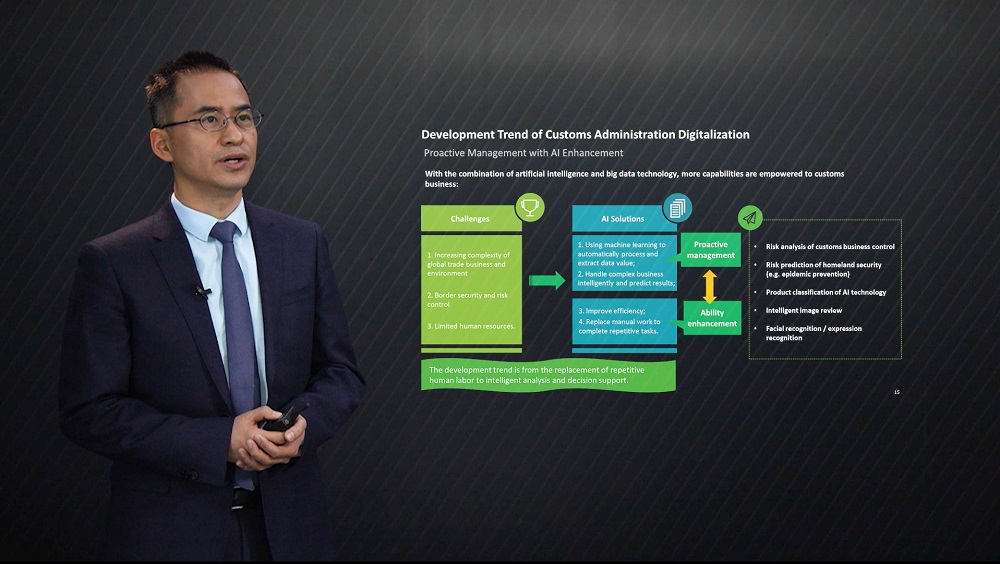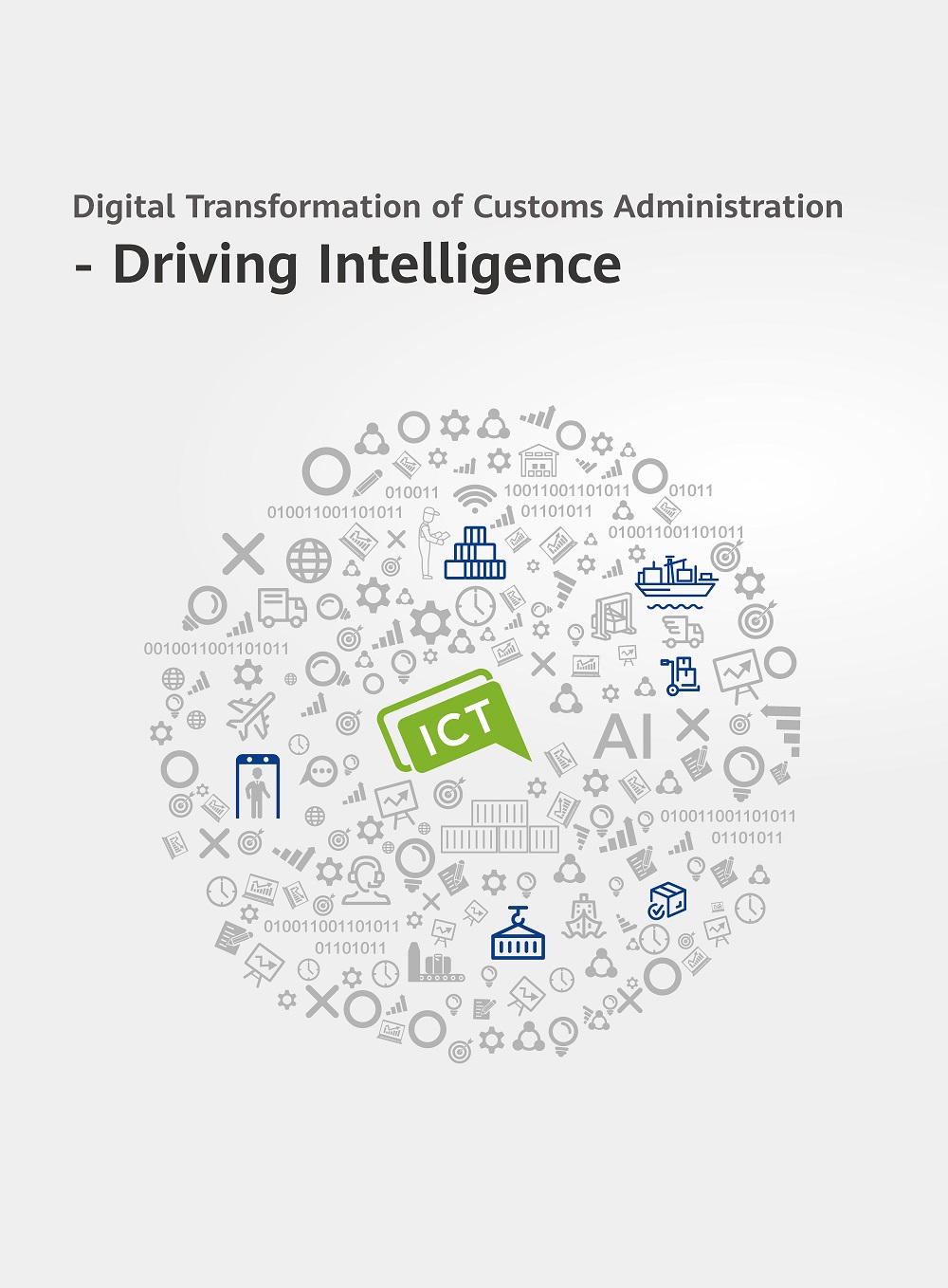This site uses cookies. By continuing to browse the site you are agreeing to our use of cookies. Read our privacy policy>
![]()
This site uses cookies. By continuing to browse the site you are agreeing to our use of cookies. Read our privacy policy>
![]()
Enterprise products, solutions & services
[Shenzhen, China, March 29, 2021] At the Huawei Digital Transformation Conference 2021, Mr. Zhou Yi, National Leader of Customs and Global Trade at Deloitte China, introduced and released the research report Digital Transformation of Customs Administration — Driving Intelligence, which was jointly written by Mr. Zhou and other industry experts. The report highlights that in the post-pandemic digital era, technologies such as big data, AI, cloud computing, IoT, and digital twins are digitally enabling customs to extend their capabilities in both supervision and service.

Mr. Zhou Yi explains the main points of the research report.
Mr. Zhou said, "The COVID-19 pandemic is reshaping the world and our lives. In 2021, customs worldwide need to actively participate in post-pandemic reconstruction and increase investment in security and risk management, trade facilitation, and e-commerce. They should enhance the global supply chain security and reinforce collaboration to apply technologies more efficiently."

Digital Transformation of Customs Administration — Driving Intelligence
The research report consists of three chapters: Digital Development Trend of Customs Administration in the Post-Pandemic Era, the Optimized Future of Customs Digitalization, and Challenges and Reflections on the Digital Transformation of Customs Administration. The main points are as follows:In 2021, each technological breakthrough is likely to revolutionize the customs ecosystem. As government departments and enterprises gradually deepen their understanding of digital administration under the new ecosystem, the digital transformation of customs will also enter a "new runway".
Huawei Industrial Digital Transformation Conference 2021 is being held from March 24 to 26, exploring the power of the resilient and innovative digital world from three perspectives: business, technology, and ecosystems. We will share insights on digital transformation, introducing the business strategies, talent programs, and ecosystems that support it. We will detail practices that we have carried out over recent years in the government, education, transportation, finance, and energy sectors, as well as other industries. And we will showcase the latest progress in connectivity, cloud, and AI fields.